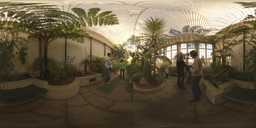This is an experimental technique for preparing panoramic blending masks.
The usual technique for editing masks is to open the TIFF files used as input for enblend and modify the alpha channel. This is laborious and results in what would normally be temporary data becoming work that has to be saved.
enblend-mask introduced the possibility of using external mask files, this lets you delete the (potentially huge) temporary TIFF files, but involves much pasting in an image editor like the gimp.
Here we are using another feature of enblend-mask, which is that input can be any image filetype including SVG (Scalable Vector Graphics). SVG files can mix bitmap and vector data which is just what we need.
Original photos




Remapped photos
These are the four photos remapped by hugin into equirectangular space:
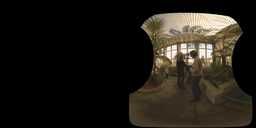
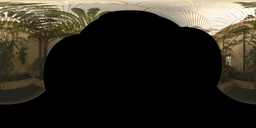
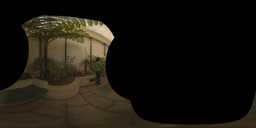
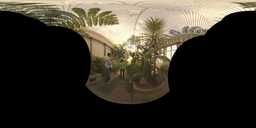
These are not much use for blending, they are JPEG files, so they don't have an alpha channel mask required by enblend to position the seam. You could use enblend-mask to store the mask as a separate TIFF file, but such mask files are not easily editable once created.
Remapped photos as SVG
So here we are going to include the JPEG files in SVG (Scalable Vector Graphics) files. This is interesting for two reasons:
Although the JPEG images are included they are not stored inside the SVG file itself, they are external like an image embedded in an HTML page.
SVG files can store a polyline clip path, effectively an editable vector alpha-channel.
These SVG files are really simple, here is what one looks like inside:
<?xml version="1.0" encoding="UTF-8" standalone="no"?>
<svg xmlns="http://www.w3.org/2000/svg"
xmlns:xlink="http://www.w3.org/1999/xlink"
width="6636" height="3318" version="1.0">
<image y="0" x="0" id="image2167" height="3318" width="6636"
xlink:href="mypicture.jpg" />
</svg>
Here are some SVG files created in Inkscape that reference the JPEG images above (note the small file size, if you are using firefox you can click on them and view them at full resolution):
Here are some thumbnails showing how the SVG files look, notice that the mask has been adjusted to removed unwanted details:
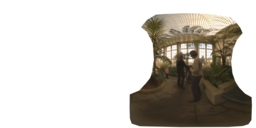
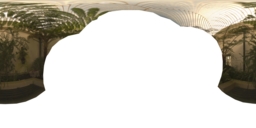
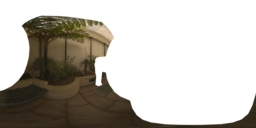
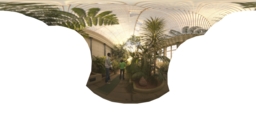
Blended output
..and finally, these SVG files can be blended in enblend using enblend-mask just like normal TIFF input:
enblend-mask -o dsc-0538-dsc-0541.tif -w *.svg
Here is the result:
